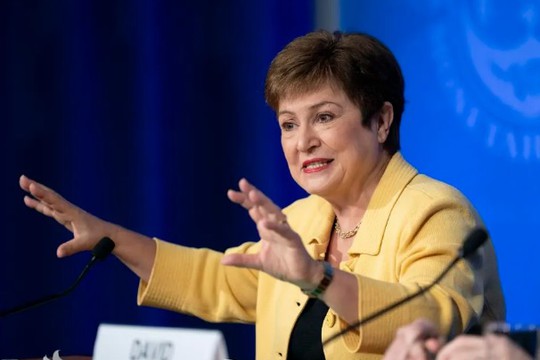Kristalina Georgieva, the director of the International Monetary Fund
With war in the Middle East looming, energy prices once more spiking, and governments seemingly drowning in debt, the impression of all-embracing perma-crisis grows by the day. Yet at the International Monetary Fund (IMF) there is an almost surreal air of calm verging on outright complacency, notes ‘The Telegraph’.
“Our projections are increasingly consistent with a soft-landing [in the global economy],” says the IMF’s chief economist, Pierre-Olivier Gourinchas.
As for the bond market rout of recent weeks, which has dramatically increased government borrowing costs, there is a “nothing to see here” message from the head of the IMF’s financial stability division, Tobias Adrian.
Janet Yellen, the US Treasury Secretary, seemed to share the sense of unconcern. “I haven’t seen any evidence of dysfunction in connection with the increase in interest rates,” she said in an interview.
It is as if all the big cheeses of global economic policy have got together and collectively determined to put as brave a face on matters as they can, for fear of further feeding the panic.
That’s what policymakers do when their back is against the wall – they deny reality in the hope that things self-correct before anyone has the temerity to shout that “the emperor has got no clothes”.
And perhaps they will, but to do so would defy gravity. There is virtually no historical precedent for a tightening of this speed and extent resulting in a soft landing. What’s more, the global debt overhang has never been greater. We are literally drowning in the stuff.
The IMF nonetheless seems to believe in levitation. With the possible exception of Germany, all major advanced economies are expected to avoid outright recession over the next couple of years, albeit with mainly marginal rates of growth.
The big standout is the US, which thanks largely to Bidenomics is projected to continue growing relatively strongly. But make no mistake; this is not natural growth. It has essentially been bought at the cost of massive deficit spending.
It’s been great for jobs and investment, but it is also quite plainly crippling the public finances, which are now perilously close to an unsustainable footing.
For any economy, even one as mighty as the US, to be running a fiscal deficit of 8.2pc – which is what the IMF forecasts for this year – at the top of the economic cycle is asking for trouble. Nor is there any respite in prospect; on unchanged policy, the deficit will still be 7pc of GDP five years from now, the forecasts suggest.
With interest rates now widely expected to be “higher for longer”, debt servicing costs are going through the roof.
It might only take one major bankruptcy, possibly of a large, highly leveraged hedge fund, to bring the whole house of cards tumbling down.
read more in our Telegram-channel https://t.me/The_International_Affairs

 11:29 30.10.2023 •
11:29 30.10.2023 •























